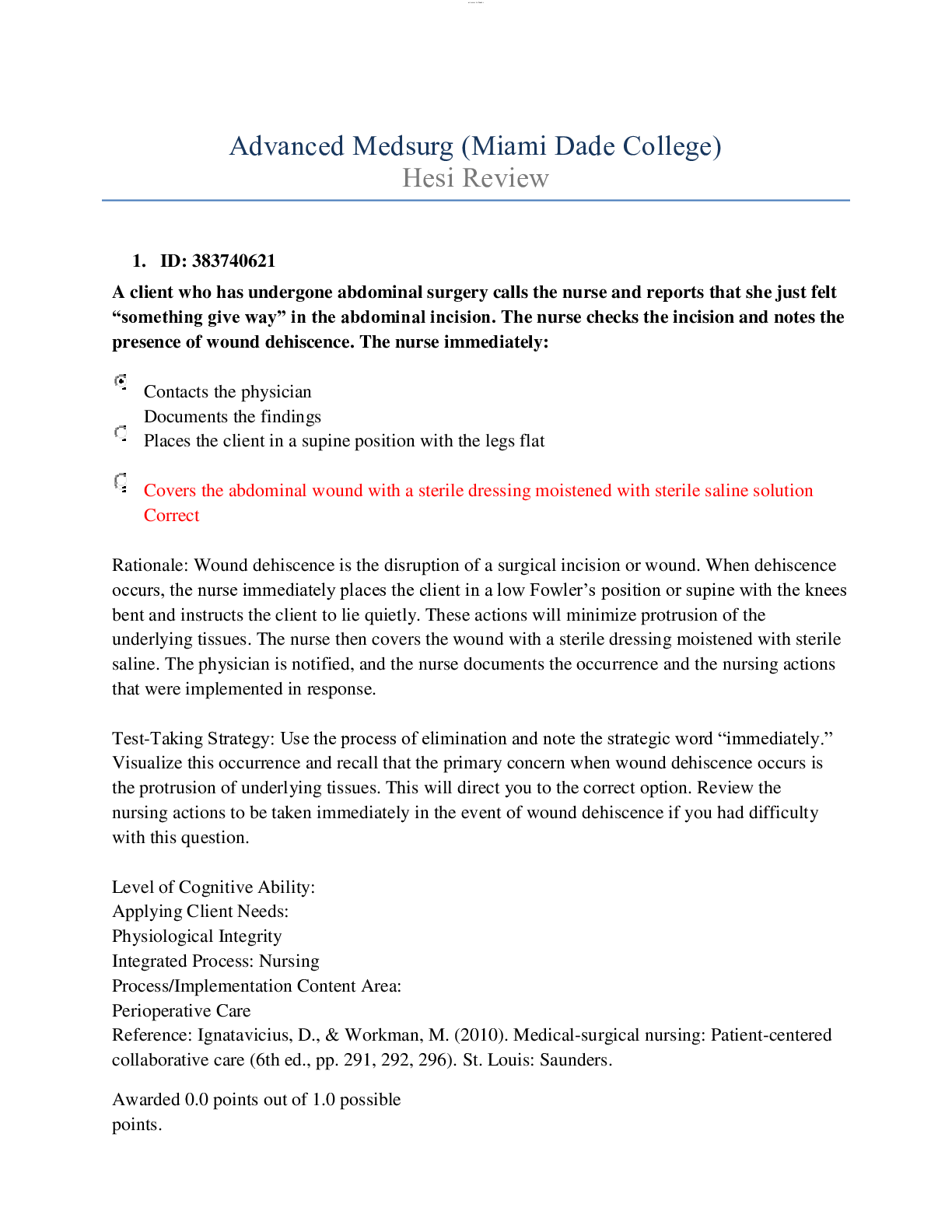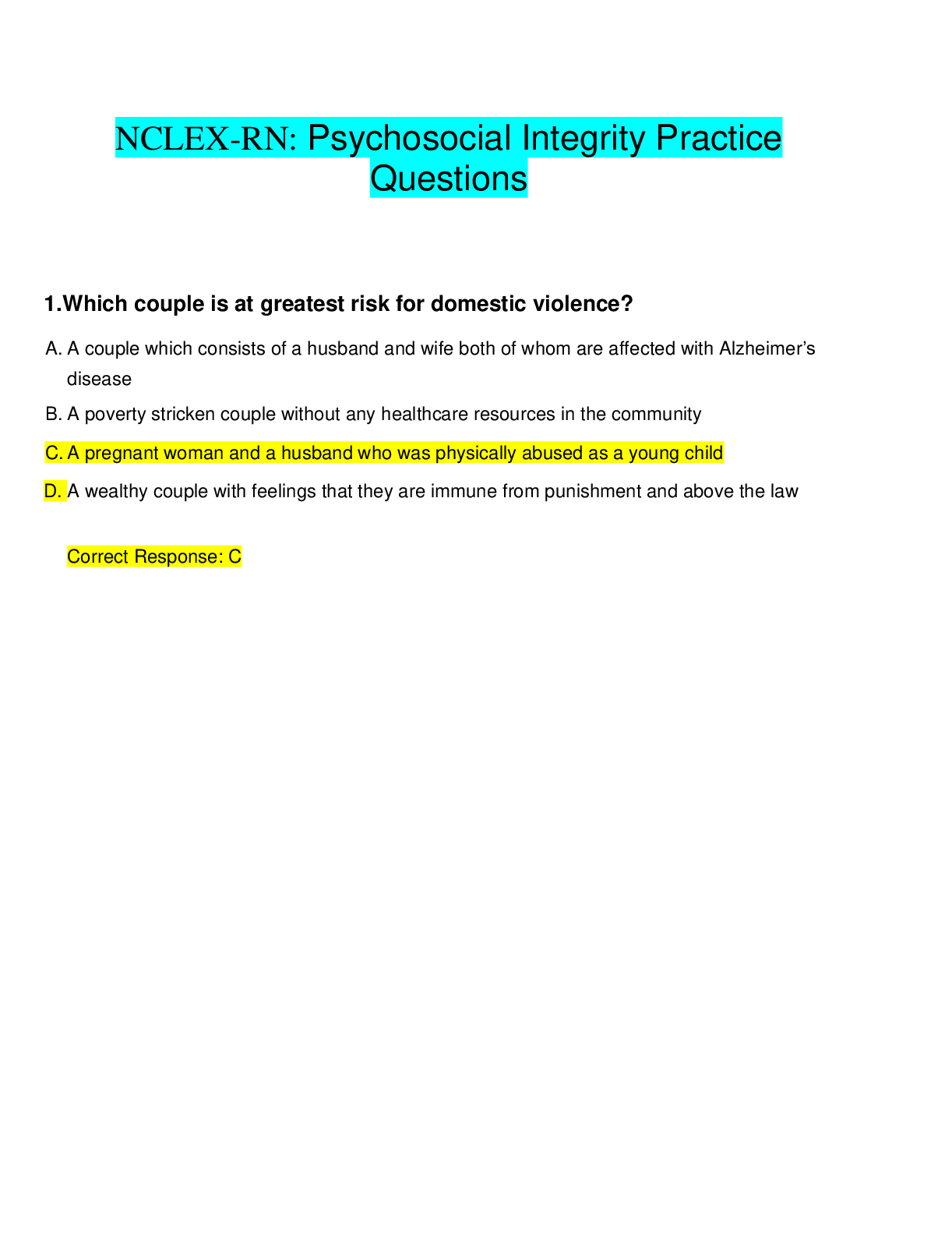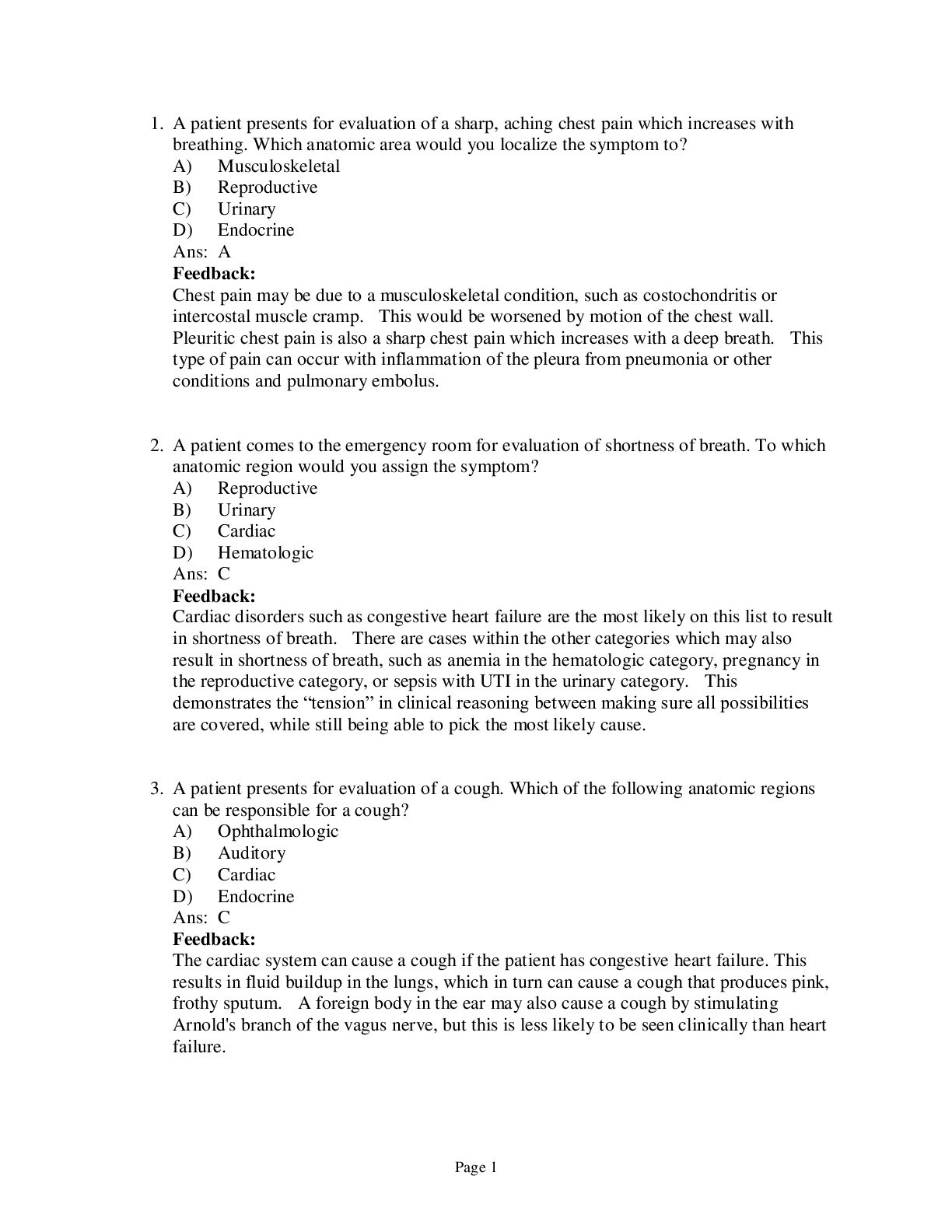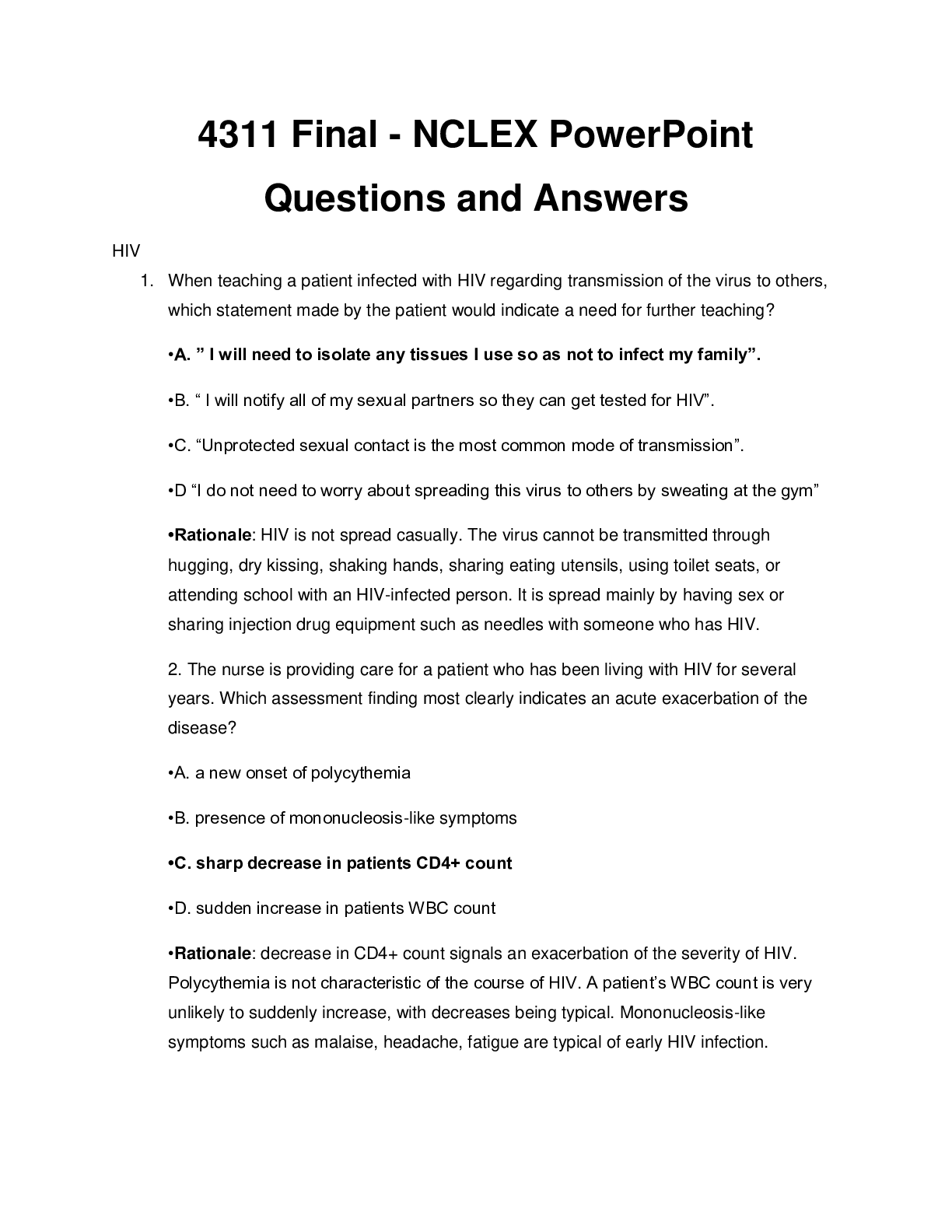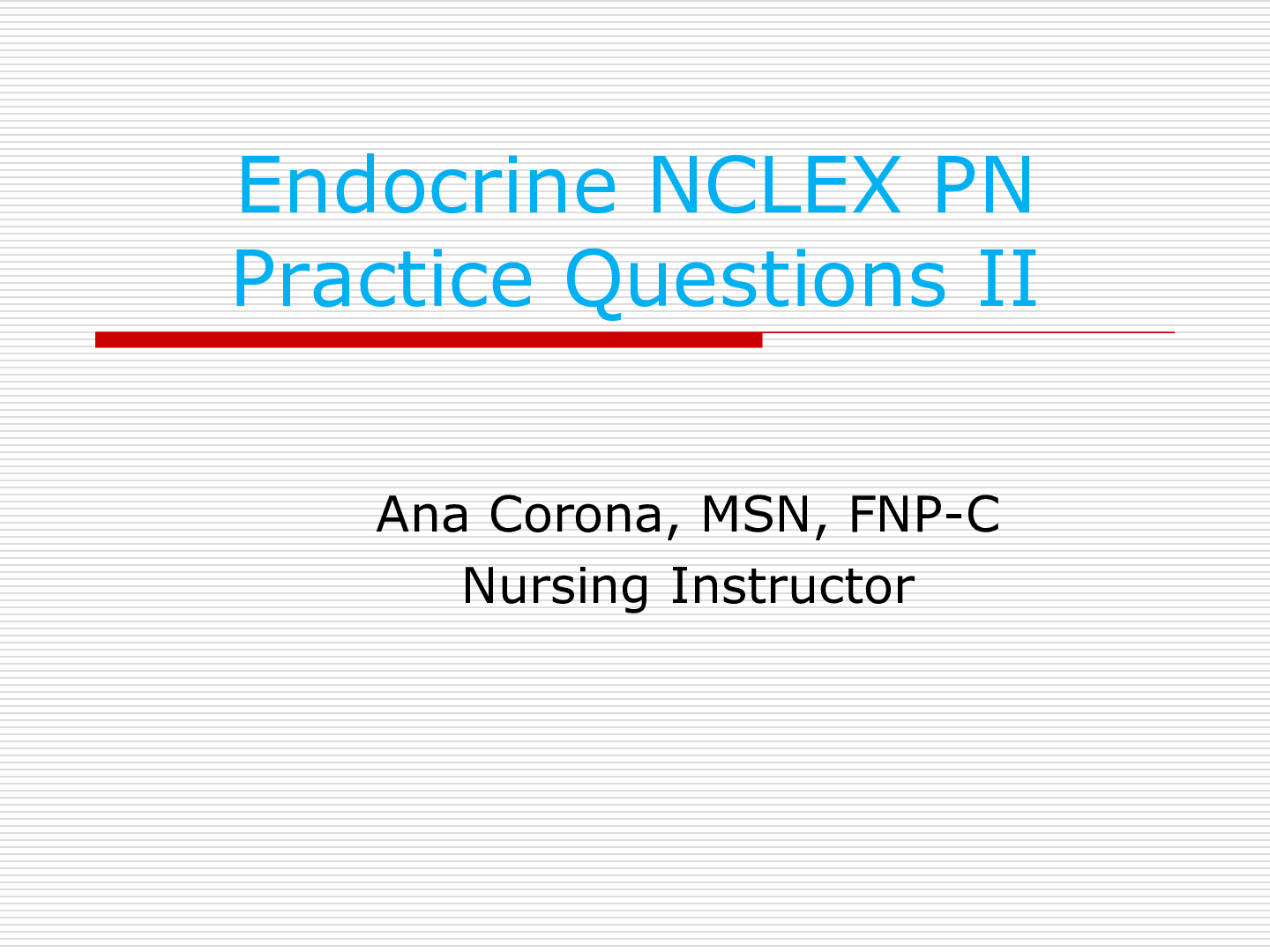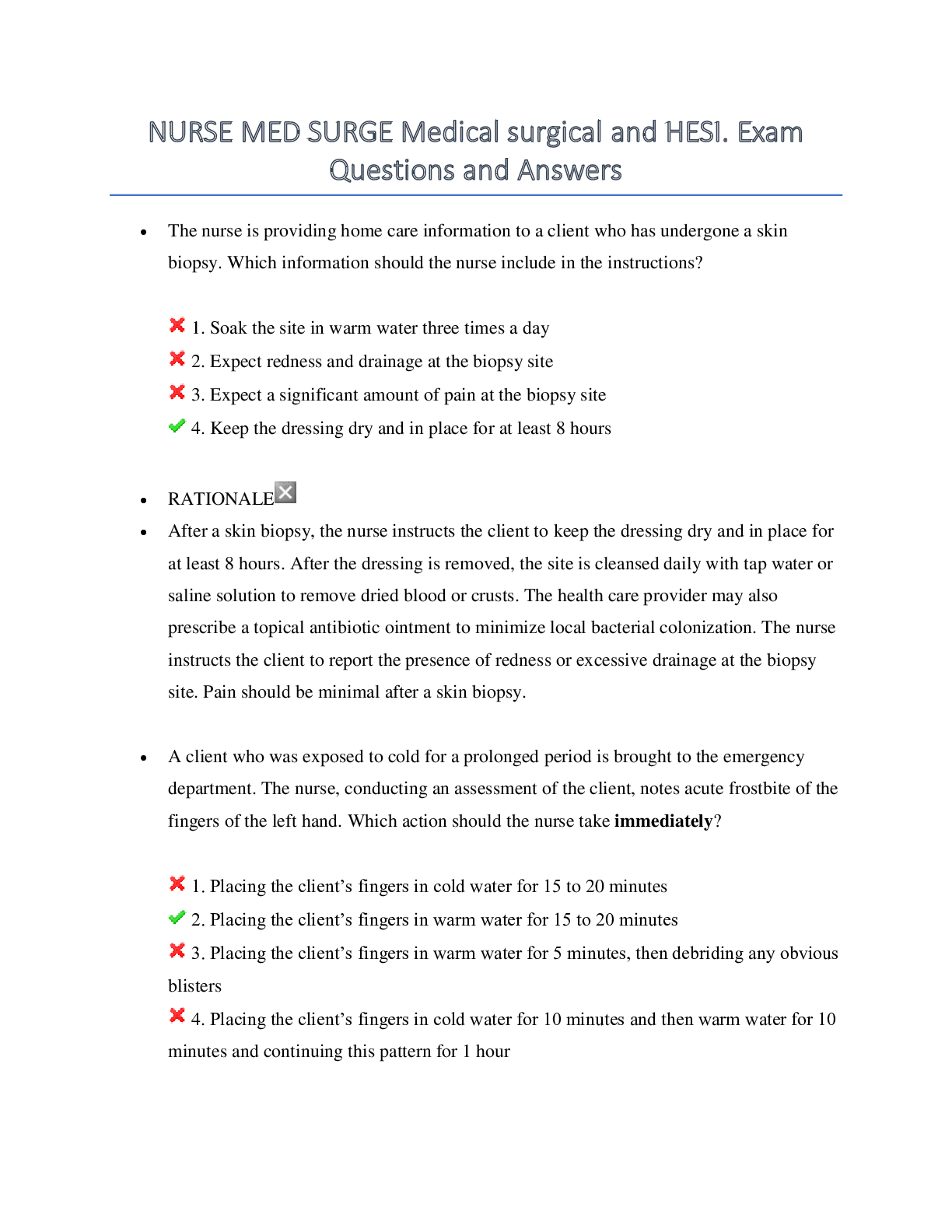Psychology > QUESTIONS & ANSWERS > AQA Psychology Social Influence Questions and Answers with Verified Solutions (All)
AQA Psychology Social Influence Questions and Answers with Verified Solutions
Document Content and Description Below
AQA Psychology Social Influence Questions and Answers with Verified Solutions Internalisation ✔✔Conforming to the group because you accept its norms - you agree privately as well as publicly. ... Identification ✔✔Conforming to the group because we value it - prepared to change views to be part of it. Compliance ✔✔Superficial agreement with the group - going along with it publicly but holding a different view privately. Informational social influence (ISI) ✔✔Agreeing with the majority view/behaviour because we believe they know better or are more likely to be right. Normative social influence (NSI) ✔✔Agreeing with the majority because we want to be liked and/or do not want to be rejected. Asch's research: Seven key points ✔✔Procedures - Participants had to identify lines of the same length along with 6-8 confederates. 12 out 16 critical trials. Findings - Mistakenly agreed with confederate majority 37% of the time, mostly normative social influence. 25% never conformed. Group size - Conformity increased to 32% with a majority of three but not further. Unanimity - Conformity rate dropped with a dissenter (whether right or wrong). Task difficulty - Conformity increased as the task got harder, mainly informational social influence. Zimbardo's research: Six key points ✔✔Procedure - 'Emotionally stable' students played roles of prisoners and guards in prison simulation scheduled to last two weeks. Guards and prisoners had their own uniforms to emphasise their social roles. Finding - Guards treated prisoners harshly especially after suppressing an attempted rebellion. Prisoners became more depressed until the study was stopped after six days. Conclusion - Guards, prisoners and researchers all conformed to their roles within the mock prison. Study demonstrated the power of the situation to influence behaviour. Milgram's research: Six key points ✔✔Procedure - 'Teacher' gave fake electric shocks to 'learner' during a 'learning task', ordered to do so by an experimenter. At 315v learner pounded on the wall for the last time. Prods, e.g. 'You have no other choice, you must go on'. Findings - No participants stopped before 300v and 65% went all the way to the top of the shock scale, 450v. Many showed signs of stress, most objected but continued anyway. Prior survey said 3% would obey. Situational variables: Six key points ✔✔Proximity - Reducing the distance between teacher and learner reduced obedience. Obedience = 40% when learner and teacher in same room. Location - Changing the location to somewhere with less status and prestige reduced obedience. Obedience = 47.5% in run-down office. Uniform - Uniform is symbol of authority. Obedience = 20% when experimenter's role was taken by an ordinary member of the public. Agentic state ✔✔'I was just following orders.' We fail to take personal responsibility because we believe we are acting on behalf of an authority figure. Autonomous state ✔✔We feel free of other influences and so take personal responsibility for our actions. Agentic shift ✔✔We switch from being autonomous to being an agent, because we perceive someone else to be an authority figure entitled to expect obedience. Legitimate authority ✔✔Some people have positions of authority because they have been entrusted by society with certain powers (e.g. police). Power ✔✔One power is the power to punish, so we obey authority out of fear of punishment, which we learn in childhood. Destructive obedience ✔✔We behave in cruel ways if the legitimate authority orders us to do something destructive. Authoritarian Personality: five key points ✔✔Adorno's procedure - Studied over 2000 middleclass white Americans and their unconscious attitudes to racial groups. Adorno's findings - High F-scale scores linked with identification with the 'strong' and contempt for the 'weak'. Example of F-scale - Obedience and respect for authority are the most important virtues children should learn. Characteristics of AP - Extreme respect for authority and obedience to it, very inflexible outlook, hatred for minorities. Origins of AP - Harsh parenting results in hostility but cannot be expressed against parents so displaced. Resist conformity ✔✔Conformity less likely when a dissenter breaks from majority. Resist obedience ✔✔Obedience less likely when disobedient role model available. Resistance ✔✔Both cases show other people that resistance is possible. Internal LOC ✔✔Fate lies in your own hands so better equipped to resist social influence. External LOC ✔✔What happens to you is down to luck or chance so no point resisting. Resisting influence ✔✔Internals are more confident and have less need for social approval. Minority influence: Five key points ✔✔Minority influence - One person/small group influences one person/small group/large group (Moscovici). Consistency - Minority stay united and keep same views over time. Commitment - Augmentation principle - personal sacrifices show minority not acting out of selfinterest. Flexibility - Minority should accept reasonable counter-arguments from majority. Process of change - Majority thinks deeply about minority view, then snowball effect - minority view becomes majority. Social change: Five key points ✔✔Minority influence - Special role in social change because leads to innovation (Moscovici). Processes - Draw attention, consistency, deeper processing, augmentation principle, snowball effect. Social cryptomnesia - People forget the origins of a social change. Conformity - Normative social influence - people change their behaviour because they believe majority are too. Obedience - Gradual commitment - people obey instructions one step at a time. [Show More]
Last updated: 1 year ago
Preview 1 out of 7 pages
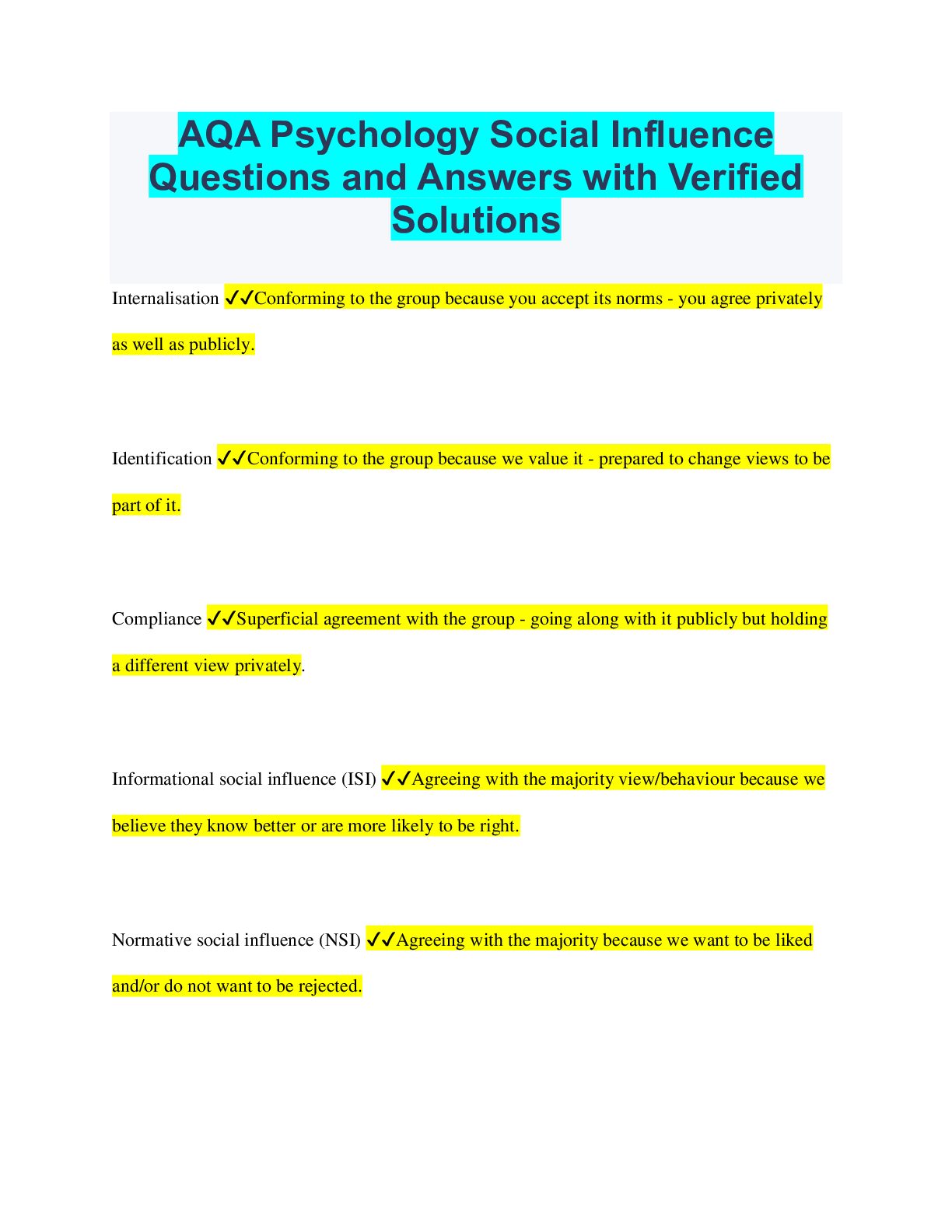
Buy this document to get the full access instantly
Instant Download Access after purchase
Add to cartInstant download
We Accept:

Also available in bundle (1)

AQA A-Level Psychology - Social Influence Bundled Exams Questions and Answers All Rated A
AQA A-Level Psychology - Social Influence Bundled Exams Questions and Answers All Rated A
By Nutmegs 1 year ago
$20
7
Reviews( 0 )
$10.00
Document information
Connected school, study & course
About the document
Uploaded On
May 08, 2023
Number of pages
7
Written in
Additional information
This document has been written for:
Uploaded
May 08, 2023
Downloads
0
Views
61

.png)
.png)
.png)
.png)
.png)
.png)
.png)
.png)
.png)
.png)
.png)

